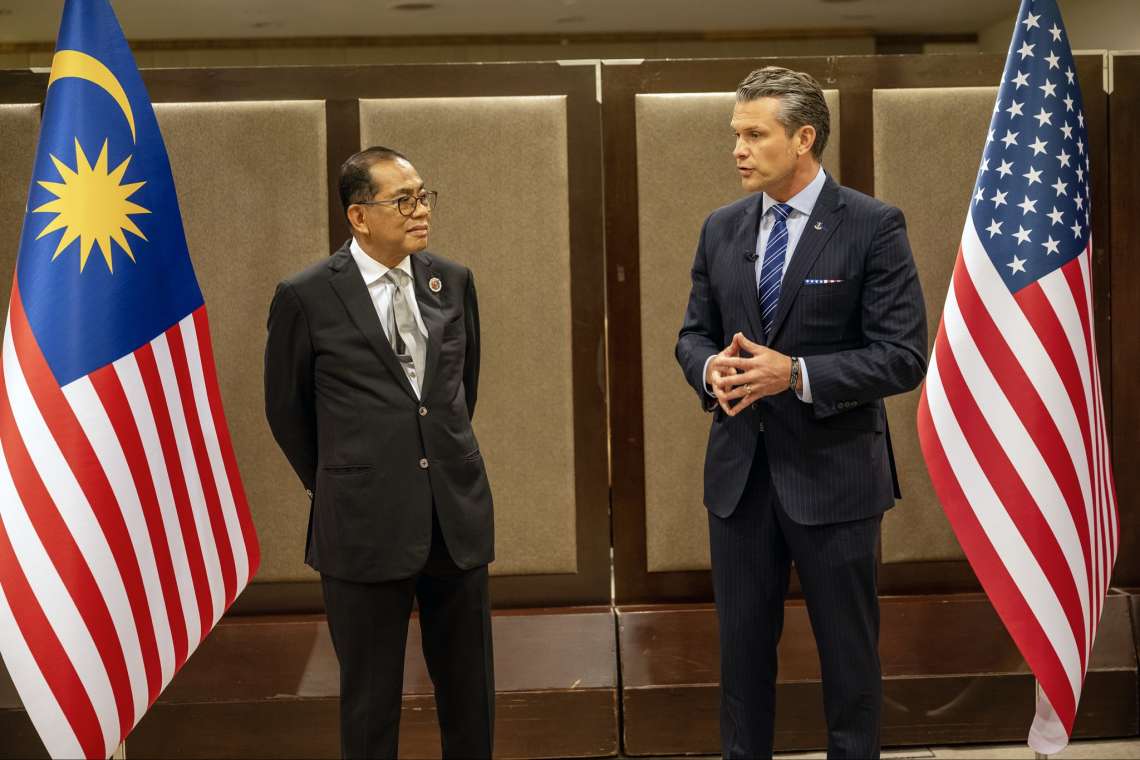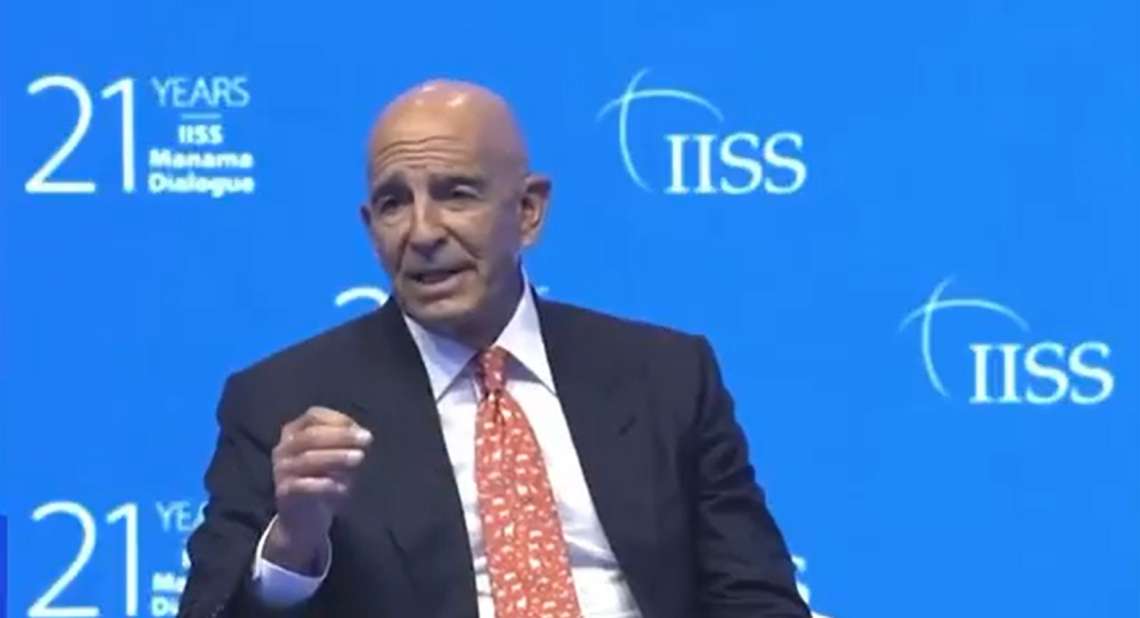Washington toughens stance in Asia, urging ASEAN to boost maritime strength and resist Chinese coercion as regional drills, diplomacy and territorial disputes heighten tension in contested waters….reports Asian Lite News
The United States has called on Southeast Asian nations to take a firmer collective stance against what Washington describes as increasingly assertive and destabilising Chinese behaviour in the South China Sea, urging the region to strengthen maritime capabilities and deterrence measures to safeguard sovereign rights and freedom of navigation in one of the world’s most contested waterways.
Addressing defence ministers from the Association of Southeast Asian Nations (ASEAN) at a high-level meeting in Malaysia, US Defence Secretary Pete Hegseth warned that the region faced a moment of strategic consequence as China continues to expand its maritime footprint, intensify coercive actions at sea, and enforce sweeping territorial claims that overlap with those of multiple Southeast Asian states.
Hegseth said the United States remained deeply concerned about what he described as China’s growing aggression, pointing to recent encounters in which Philippine vessels were rammed or targeted with high-pressure water cannons by Chinese coastguard ships. He characterised such incidents as deliberate attempts to intimidate regional nations and re-shape maritime boundaries through force rather than lawful diplomacy.
He said China’s actions “challenged and threatened territorial sovereignty in the region,” adding that Washington viewed the South China Sea as a critical theatre for regional stability, commercial security and international law. While he emphasised that the United States maintained a channel of dialogue with Beijing, he made clear that American policy would hinge on ensuring China could not dominate regional waters or impose its will through power projection.
“China’s sweeping territorial and maritime claims fly in the face of commitments to resolve disputes peacefully,” he said, adding that “the US seeks peace and does not seek conflict, but must ensure that China is not seeking to dominate ASEAN states or anybody else.”
Beijing claims almost the entire South China Sea, a position dismissed by an international tribunal in 2016. However, ASEAN members the Philippines, Vietnam, Malaysia and Brunei all claim parts of the same waters, and tensions have risen sharply between China and the Philippines, a US treaty ally that has been targeted with increasingly hostile at-sea manoeuvres.
Manila has repeatedly called for a stronger ASEAN response, but the bloc has traditionally balanced security concerns with economic imperatives. China remains ASEAN’s largest trading partner, and several member states are wary of allowing security tensions to derail commercial ties or force them to choose sides between Washington and Beijing.
Hegseth directly criticised Beijing’s recent declaration of the contested Scarborough Shoal as a “nature reserve,” describing it as a pretext for further occupation and militarisation. He said “you do not put platforms on nature reserves” and framed the move as an attempt to “coerce new and expanded claims at ASEAN’s expense.”
He also urged Southeast Asian militaries to enhance joint surveillance, improve rapid-response systems and invest in maritime security capabilities. “Words without the ability to back them up with action are empty,” he said, welcoming plans for an ASEAN–US maritime exercise in December designed to strengthen interoperability and communication among regional navies.
China has consistently rejected American criticism, arguing that Washington is the destabilising force in the region through its military presence and alliances. Beijing maintains that its activities in the South China Sea — including patrols and island construction — are lawful and defensive.
Following the meeting, Chinese military officials accused the Philippines of acting as a “troublemaker” after Manila concluded joint naval and air exercises with the United States, Australia and New Zealand. The training drills, which included anti-submarine simulations and at-sea refuelling operations, were described by the Philippine military as necessary to protect its rights in disputed waters.
Tian Junli, spokesperson for China’s Southern Theater Command, said the exercise “seriously undermined regional peace and stability,” claiming it demonstrated that the Philippines was “a saboteur of regional security.”
Despite persistent tension, most ASEAN states continue to walk a delicate diplomatic line, keen to avoid confrontation with Beijing while maintaining open economic channels. But with maritime incidents accelerating and US messaging hardening, the region now finds itself grappling with sharper geopolitical fault lines and growing pressure to take a more unified stance.













